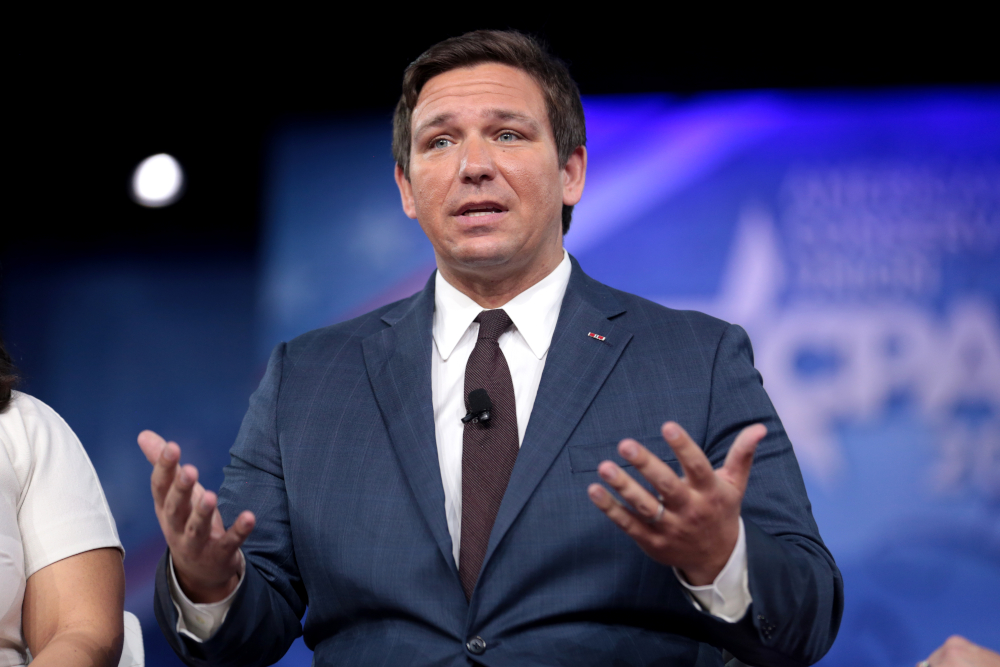A bill about to become law in Florida will likely wipe out much of the state’s $1.8 billion CBD market. The measure, which would ban all products that contain intoxicating hemp compounds and put crippling restrictions on CBD, passed both houses of the Florida state legislature this week.
The legislation (HB 1613) would specifically prohibit ingestible or inhalable products that contain delta-8 THC, delta-10 THC, HHC, THCA, THCP and THCV. All of those compounds are made by putting hemp-derived CBD through a synthetic process to produce highly concentrated substances that give users a “high.”
The Senate voted unanimously, 39-0, to pass the bill, while the House of Representatives voted 64-48. The law will go into effect Oct.1 if it is signed by Gov. Ron DeSantis, which is expected.
$1.8 billion market
Data provider Statista has projected Florida CBD retail sales in 2024 to reach $1.8 billion, which would make the state the second largest market behind California’s $3.3 billion, and just ahead of New York, with $1.5 billion. But the retail accounting fails to consider CBD bulk sales to the makers of synthetic hemp intoxicants. While no figures are available for those wholesale deals, the products rapidly proliferated over the past few years.
The synthetic products, sold as alternatives to those containing the more common delta-9 THC that occurs in high levels in marijuana, emerged after the 2018 Farm Bill legalized industrial hemp and its downstream products across the U.S. But the federal law created a loophole by not accounting for synthetically produced psychoactive products that can be made from hemp flowers.
Florida lawmakers say the law is intended to eliminate the risk of over-ingestion of the “high” producing compounds, especially by children, who are often targeted in marketing. In committee meetings ahead of the 2024 legislative session, lawmakers heard reports from health officials about children having ingested such products, sometimes leading to hospital visits.
The bill’s provisions aimed at combating the marketing of intoxicating hemp products to children define those as “products that are manufactured in the shape or packaged in containers displaying humans, cartoons, or animals, toys or other features that specifically target children; manufactured in a form or packaged in a container that bears any reasonable resemblance to an existing candy or snack product that is familiar to the public.”
D-9 limits for CBD
In addition to banning delta-8 THC and other synthetic intoxicants, the law limits the amount of delta-9 THC, which occurs naturally but in miniscule amounts in industrial hemp, to 5 milligrams per serving or 50 milligrams per package of CBD products. Those maximums were raised from limits in an earlier draft bill which set the per-serving barrier at 2 milligrams and the per-package maximum at 10 milligrams, but hemp producers say the limits still could kill their businesses in full-spectrum CBD.
Critics of the law have said restricting the hemp-based synthetic forms of THC and effectively banning full-spectrum CBD products could crush nearly 500 hemp flower growers and roughly 10,000 retailers in the state. They say the restrictions will criminalize producers and deprive patients who rely on the intoxicating hemp products for a range of disorders.
“Passing a bill like this could force consumers to purchase products from the unregulated market. The Florida Legislature is well on its way to eliminating several beneficial hemp and CBD products, ending Florida’s hemp industry as we know it,” JJ Coombs, CEO at Arvida Labs, which makes many of the synthetic compounds the law would ban, told Florida Phoenix.
Medical MJ plot?
Some opponents also charged that the new law was pushed by Florida’s medical marijuana sector, which sees the intoxicating hemp products as competition. Rep. Tommy Gregory, the House sponsor of the bill, rejected that claim and said his measure is simply aimed at shoring up rules in the 2018 Farm Bill.
In discussion on the House floor before that body’s vote, Gregory also dismissed concerns expressed by lawmakers who said they’d received thousands of emails from constituents who opposed the new law.
States across the USA are working to reign in the intoxicating hemp products, with some banning them altogether and others imposing strict rules. Many producers and sellers have received warnings from the U.S. Food & Drug Administration (FDA) regarding the safety of the products. FDA said it has received reports of serious adverse events from consumers, and at least one child’s death in Virginia was attributed to the consumption of delta-8 THC, the most popular of the hemp-derived synthetic compounds.

